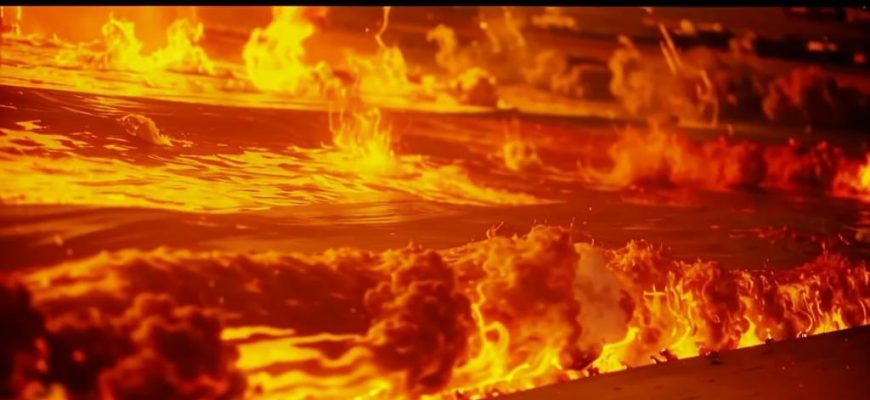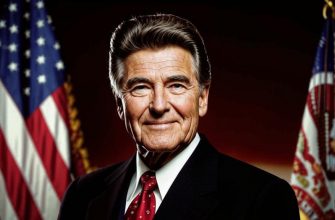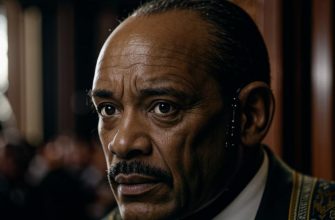Films about heat often delve into themes of survival, passion, conflict, and transformation. The intensity of heat can serve as a backdrop for high-stakes drama, a metaphor for interpersonal tensions, or an environmental challenge that characters must navigate. Whether set against the sultry backdrop of a heatwave in a bustling city or the scorching expanse of a desert, these films use the concept of heat to explore human resilience, desire, and the effects of extreme conditions on societies and individuals. From thrilling survival tales to steamy romances, films about heat ignite our most primal emotions and fears.
“Body Heat”, 1981
Director: Lawrence Kasdan

In the midst of a searing Florida heatwave, a lawyer enters into a torrid affair with a married woman. Convinced by his lover to murder her husband, the plot thickens into a steamy mix of lust, deceit, and betrayal. The heat in this film is not just physical but also represents the burning passions and dangerous schemes of its characters.
Starring: William Hurt, Kathleen Turner, Richard Crenna, Ted Danson, J.A. Preston, Mickey Rourke, Kim Zimmer, Jane Hallaren, Lanna Saunders, Carola McGuinness;
Production year: 1981;
Genre: thriller, drama, melodrama, crime;
MPAA rating: r;
Duration: 113 min.;
Rating: IMDB: 7,4;
More information about the film “Body Heat” on the website imdb.com
“Lawrence of Arabia”, 1962
Director: David Lean

An epic historical drama about British Lieutenant T.E. Lawrence's experiences in Arabia during World War I. It visually captures the extreme heat and harshness of the desert, which becomes a defining force in Lawrence's journey and the broader conflict.
Starring: Peter O'Toole, Alec Guinness, Anthony Quinn, Jack Hawkins, Omar Sharif, José Ferrer, Anthony Quayle, Claude Rains, Arthur Kennedy, Donald Wolfit;
Production year: 1962;
Genre: drama, adventure, war, biography;
MPAA rating: pg;
Duration: 216 min.;
Rating: IMDB: 8,3;
More information about the film “Lawrence of Arabia” on the website imdb.com
“Mad Max: Fury Road”, 2015
Director: George Miller

Set in a post-apocalyptic desert wasteland where gasoline and water are scarce commodities, the film follows survivors as they engage in explosive conflicts. The heat of the desert serves as a relentless antagonist and backdrop for the high-octane action and struggle for survival.
Starring: Tom Hardy, Charlize Theron, Nicholas Hoult, Hugh Keays-Byrne, Josh Helman, Nathan Jones, Zoe Kravitz, Rosie Huntington-Whiteley, Riley Keough, Abbey Lee;
Production year: 2015;
Genre: action, science fiction, adventure;
MPAA rating: r;
Duration: 120 min.;
Rating: IMDB: 8,1;
More information about the film “Mad Max: Fury Road” on the website imdb.com
“127 Hours”, 2010
Director: Danny Boyle

Based on a true story, this film follows adventurer Aron Ralston’s harrowing ordeal after his arm gets trapped by a boulder in an isolated canyon in Utah. Over the next five days, Ralston battles the elements, including the sweltering heat, and faces his own mortality.
Starring: James Franco, Kate Mara, Amber Tamblyn, Clémence Poésy, Lizzy Caplan, Treat Williams, Kate Burton, Sean Bott, John Lawrence, Koleman Stinger;
Production year: 2010;
Genre: thriller, biography, drama, adventure;
MPAA rating: r;
Duration: 93 min.;
Rating: IMDB: 7,5;
More information about the film “127 Hours” on the website imdb.com
“The Hill”, 2023
Director: Jeff Celentano

In a British Army detention camp in Libya, the brutal heat becomes a key player in this drama about the punishment and endurance of a group of prisoners made to climb a man-made hill in the scorching desert sun as part of their rehabilitation process.
Starring: Dennis Quaid, Colin Ford, Joelle Carter, Scott Glenn, Siena Bjornerud, Ryan Dinning, Carina Worm, Bonnie Bedelia, Randy Houser, Jesse Berry;
Production year: 2023;
Genre: drama, biography, sport;
MPAA rating: pg;
Duration: 126 min.;
Rating: IMDB: 6,7;
More information about the film “The Hill” on the website imdb.com
“Falling Down”, 1992
Director: Joel Schumacher

On the hottest day of the year, an unemployed defense worker frustrated by the various flaws he sees in society begins to psychotically and violently lash out against them as he journeys across Los Angeles. The sweltering heat acts as a catalyst for the protagonist's breakdown.
Starring: Michael Douglas, Robert Duvall, Barbara Hershey, Rachel Ticotin, Tuesday Weld, Frederic Forrest, Lois Smith, Joey Singer, Ebbe Roe Smith, Michael Paul Chan;
Production year: 1992;
Genre: action, thriller, drama, crime;
MPAA rating: r;
Duration: 113 min.;
Rating: IMDB: 7,6;
More information about the film “Falling Down” on the website imdb.com
“Sunshine”, 2007
Director: Danny Boyle

A team of astronauts is sent to re-ignite the dying sun with a nuclear fission bomb in 2057. The film explores the themes of sacrifice, the immense heat of the sun, and humanity's struggle for survival in the face of cosmic forces.
Starring: Cillian Murphy, Rose Byrne, Cliff Curtis, Michelle Yeoh, Chris Evans, Hiroyuki Sanada, Mark Strong, Troy Garity, Benedict Wong, Chipo Chung;
Production year: 2007;
Genre: science fiction, thriller;
MPAA rating: r;
Duration: 107 min.;
Rating: IMDB: 7,2;
More information about the film “Sunshine” on the website imdb.com
While some of these movies use heat as a physical challenge, facing the characters with extreme weather conditions, others employ it as a metaphor for human emotions and relationships. In all cases, heat is a central element that profoundly shapes the narrative and the characters' experiences.
As the curtain falls on our exploration of films that have ignited our screens with their depictions of heat, both literal and figurative, we're left with a vivid imprint of the diverse ways in which filmmakers manipulate this element to fuel narratives, craft atmospheres, and ignite the senses. From the scorching desolation of sun-drenched deserts to the smoldering intensity of passion, heat serves as more than mere backdrop; it becomes a character in its own right, shaping destinies and forging connections. These films, in their portrayal of heat's oppressive weight and transformative power, remind us of cinema's unique ability to evoke the physical and the emotional, to bring us face-to-face with our environment and our innermost desires. As audiences, we're offered a journey that not only tests the endurance of characters but also challenges us to reflect on our relationship with the natural world and the flames—literal or metaphorical—that drive us.









